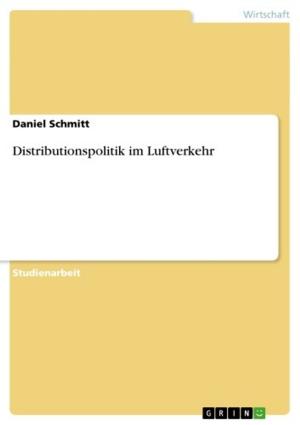Logistics of Disaster Relief
What logistical problems can arise from natural disasters and how can they be overcome?
Business & Finance, Management & Leadership, Production & Operations Management| Author: | Rinke Kloppe | ISBN: | 9783640549351 |
| Publisher: | GRIN Verlag | Publication: | February 26, 2010 |
| Imprint: | GRIN Verlag | Language: | English |
| Author: | Rinke Kloppe |
| ISBN: | 9783640549351 |
| Publisher: | GRIN Verlag |
| Publication: | February 26, 2010 |
| Imprint: | GRIN Verlag |
| Language: | English |
Seminar paper from the year 2007 in the subject Business economics - Supply, Production, Logistics, grade: 2,0, University of Örebro (Department of Business, Economics, Statistics & Informatics (ESI)), language: English, abstract: In regard to the text book 'International Logistics' I have chosen the chapter 'Logistics and famine relief' asking myself the question: 'What logistical problems can arise from natural disasters and how can they be overcome?' Based on the Hurricane Katrina in August 2005, which has destroyed an entire landscape killing thousands of people and making even more homeless, I have developed my paper by introducing the different modes of transport that exist to support the logistics network in terms of disaster relief: plane, boat, rail, road, helicopters, rescue boats (hovercrafts, canoes and small boats). Pointing out the disadvantages and advantages of each mode I came to the conclusion that each of them serves special needs in certain situations so that all of them can be regarded as equal in their function. Concerning financial factors, however, the appropriability differs: shipment is more expensive than rail transport, for example. I also found out in which way the modes of transport can reach best the affected areas and how the distribution is organized. Based on this theoretical framework, I have switched to the question how the needs of people change after a natural disaster such as Katrina in the short and the long term. To put it in a nutshell, people long for basic provisions such as food and water in the short term but start to demand for luxury goods such as electricity again in the long term. Last but not least I have focused in my analysis on special issues that are affected (interrupted, destroyed, etc.) by natural disasters: re-routing, supply chain and warehousing.
Seminar paper from the year 2007 in the subject Business economics - Supply, Production, Logistics, grade: 2,0, University of Örebro (Department of Business, Economics, Statistics & Informatics (ESI)), language: English, abstract: In regard to the text book 'International Logistics' I have chosen the chapter 'Logistics and famine relief' asking myself the question: 'What logistical problems can arise from natural disasters and how can they be overcome?' Based on the Hurricane Katrina in August 2005, which has destroyed an entire landscape killing thousands of people and making even more homeless, I have developed my paper by introducing the different modes of transport that exist to support the logistics network in terms of disaster relief: plane, boat, rail, road, helicopters, rescue boats (hovercrafts, canoes and small boats). Pointing out the disadvantages and advantages of each mode I came to the conclusion that each of them serves special needs in certain situations so that all of them can be regarded as equal in their function. Concerning financial factors, however, the appropriability differs: shipment is more expensive than rail transport, for example. I also found out in which way the modes of transport can reach best the affected areas and how the distribution is organized. Based on this theoretical framework, I have switched to the question how the needs of people change after a natural disaster such as Katrina in the short and the long term. To put it in a nutshell, people long for basic provisions such as food and water in the short term but start to demand for luxury goods such as electricity again in the long term. Last but not least I have focused in my analysis on special issues that are affected (interrupted, destroyed, etc.) by natural disasters: re-routing, supply chain and warehousing.















